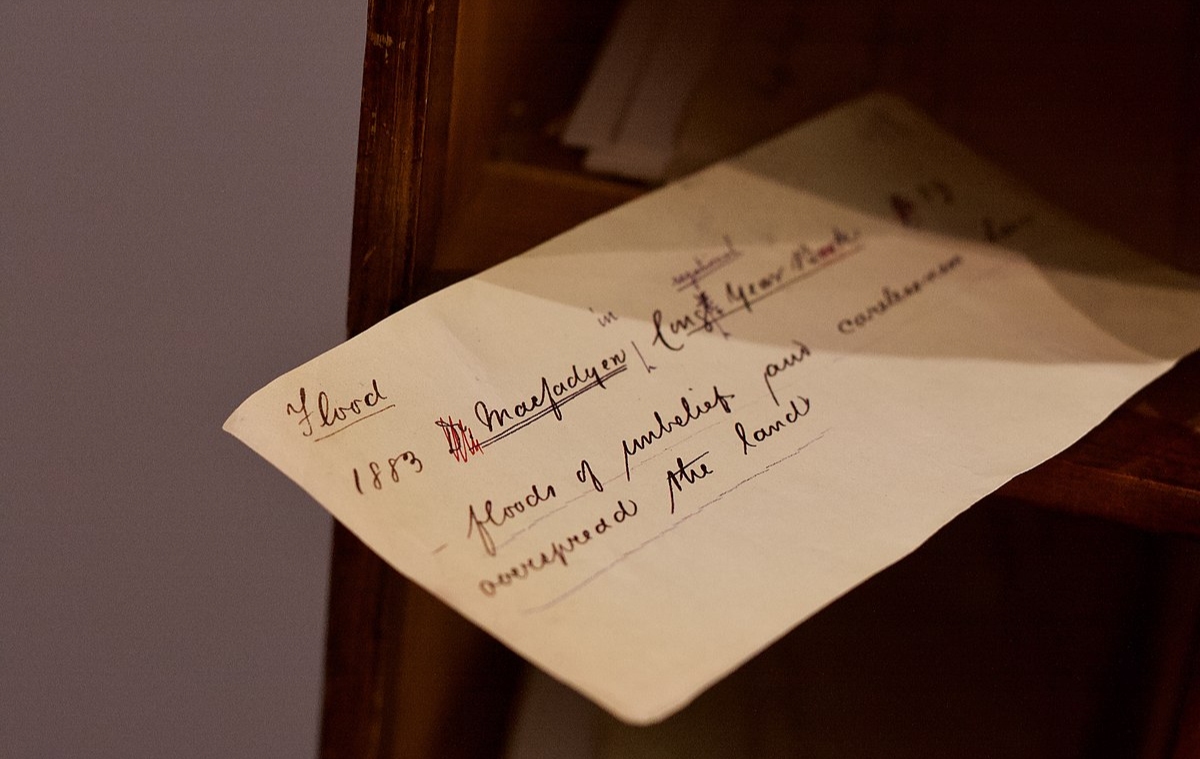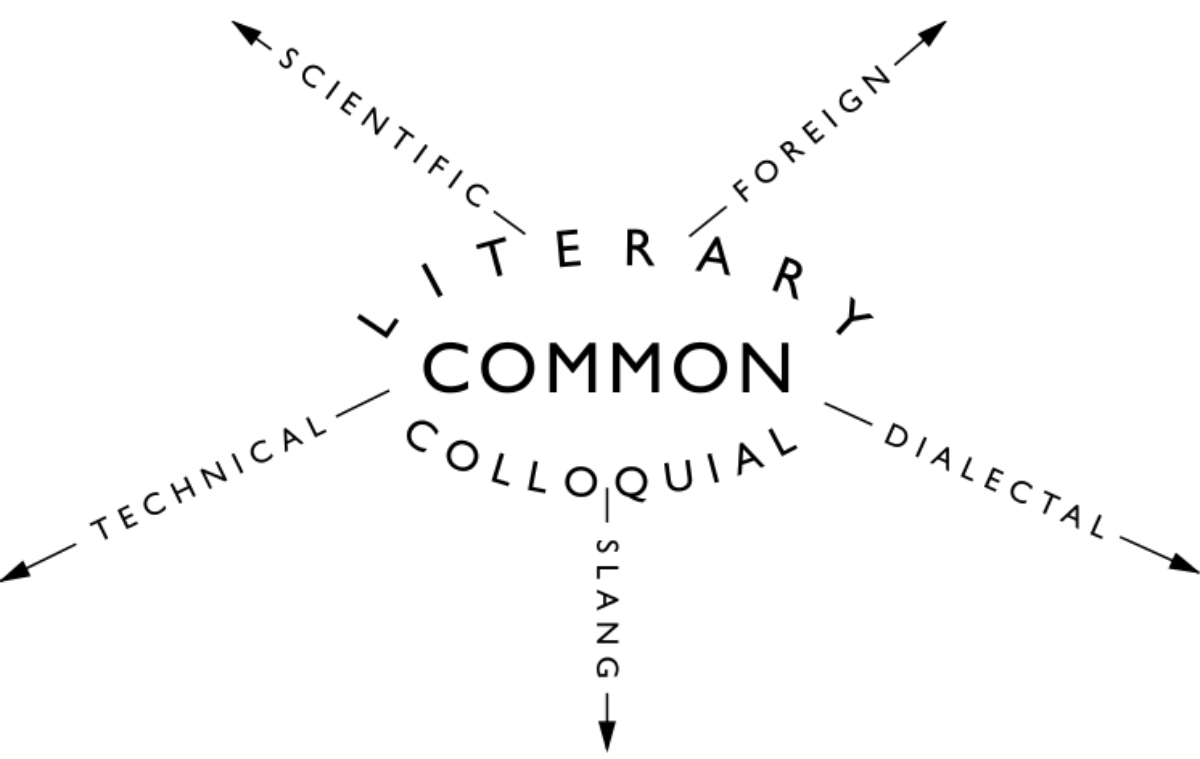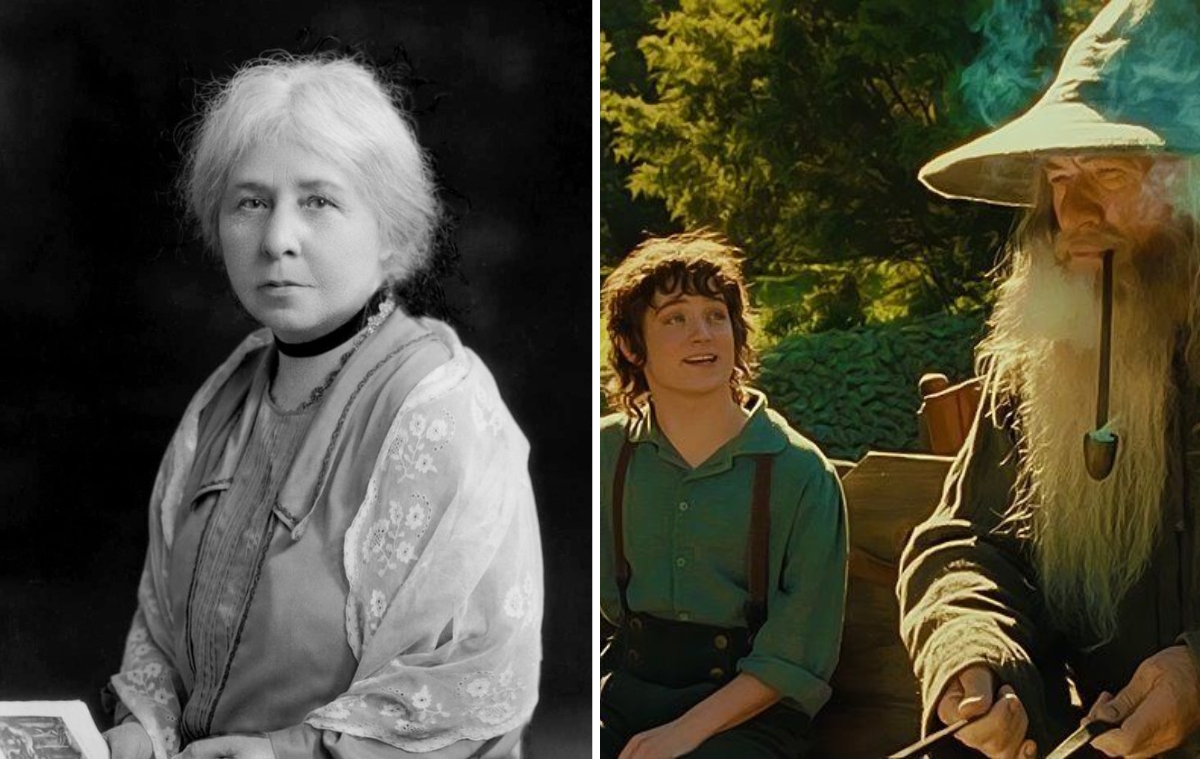To make One’s Toilette—after Death
Has made the Toilette cool
“Oh good. We’re in a coffin.” It was my first thought, accompanied by a sense of deep solace, as I sat down to translate Dominique Fortier’s Pale Shadows, her second novel about Emily Dickinson, this one set after the poet’s death.
The novel opens with a scene in which Lavinia, Emily’s sister, is brushing the poet’s hair as she lies in her coffin. It was like slipping my hand into the perfect glove. Was it Dominique’s voice that was generating this sense of coming home? Returning to Emily’s world after a few years away? Or some fathomless familiarity with death, as if the inside of a coffin and the end of a life were known territory to me?
Those first pages were like easing into a warm bath, one with rose petals floating on the surface while the shadow of a stingray flashes below. Dominique’s writing is like velvet, soft and dark, prone to look different depending on how you stroke the nap.
I have no wish to die, never have. All things told, I like this life, despite our current catastrophes of a smoldering pandemic, a planet in flames, and hate hanging in the air like smoke. But I have had two curious incidents that gave me, I felt, a glimpse of the nature of death.
It was a deep knowing that death is the loss of friction. The fallibility of our bodies, the cruelty of our society, all the angst and the ills….there is a lot of friction in this life. This, I know Emily knew.
Both occurred on the water. I am a stand-up paddle boarder, and twice while paddling I have hit some sort of rhythm, once in flat water and once in chop, where it felt like my board was encountering no friction at all. And in the instant that sense of no friction hit, the thought popped into my head, “Oh, I recognize this. I’m dead.”
This was no premonition; no terrible accident ensued. It was a deep knowing that death is the loss of friction. The fallibility of our bodies, the cruelty of our society, all the angst and the ills….there is a lot of friction in this life. This, I know Emily knew. And I suspect Dominique Fortier does too.
Suspense—is Hostiler than Death—
Death—tho’soever Broad,
Is Just Death, and cannot increase—
Suspense—does not conclude—
To say that Pale Shadows is a sequel is not quite right, despite the fact that this is Fortier’s second book about Emily Dickinson. The author, who has won the prestigious Prix Renaudot, among other honors, delicately dug up Emily’s corpse in Paper Houses, her first novel set in the poet’s world. She imagined her life in the form of vignettes, all lightness and darkness. Fortier’s touch was delicate, dancing with Emily rather than dissecting her, as so many people before her have done. She is gentle, more diffuse, as if she is looking at the poet through lace.
The absence of the Witch does not invalidate the spell.
Emily Dickinson has been absent for almost a century and a half, but she has cast a formidable spell, on English majors, on puzzle solvers, on Dominique Fortier, and by extension, on me. The fascination with Dickinson as a literary figure and a woman is inexhaustible and domain-defying. Her life and her myth have launched academic careers, generated biopics, been the inspiration for tarot cards, tote bags, air fresheners and, of course, porn.
My heart sang a little upon reading the ancestry.com announcement that Taylor Swift and Dickinson are sixth cousins, thrice removed. Emily is all zeitgeist, all the time. She has even inspired articles in peer-reviewed medical journals, treatises accompanied by supporting evidence, one refuting a biographer’s speculative diagnosis of epilepsy being at the root of her reclusiveness, another considering what might have been behind her ophthalmological complaints. In our times, a woman must be long dead to receive the medical attention she deserves.
In Pale Shadows, Fortier’s second waltz through Emily’s world, she puts Dickinson back in the ground and turns her imagination to the women around the poet who made the book that brought her poetry and her myth to the light. But by Fortier’s own account, Pale Shadows was not the book she was trying to write. It was the one she couldn’t shake.
At the end of the summer of 2020, she was toiling on a handful of projects, some old, some new, all of them going nowhere. She realized the reason none of them were working was that without knowing it, she had continued to inhabit Dickinson’s world. She sat down to write her way back to Emily that day, but it would be months before she found the answer to the question of how to write Emily now that Emily was dead. The answer came once she stopped searching, as answers so often do: “constructing what comes after death is what we do every day of our existence. It is called continuing to live.”
This latest novel tells the story of the three women who brought Emily Dickinson’s poems to the world: her steadfast sister, Lavinia, her brother’s ambitious mistress, Mabel Loomis Todd, and his grief-stricken wife and Emily’s bosom friend, Susan Gilbert Dickinson. Mabel’s daughter Millicent, a serious-minded child with a second sight for apparitions of the poet, also haunts the pages. Feeling their way through the dark of Emily’s unexpressed wishes and the self-important male world of publishing, they take poems scratched out on bits of paper found in a drawer and turn them into an American literary legacy.
It was not Death, for I stood up,
And all the Dead, lie down—
As is fitting for our late-pandemic times, Fortier explained in interview upon the release of the book in French that it was not so much a book about death, as about what happens after. It is about what remains, about what people leave behind, about how our lives are transformed when someone dies, and we have no choice but to rebuild.
“What interests me is always the survivors,” she says.
Fortier’s writing over the years has often returned to what makes books appear and endure, their mysterious power over us, and the fragile but necessary character of literature. A book does not end with the author who wrote it, she says. Books are the only things that don’t die, and they may well exist because we die. We wouldn’t need to write if we were eternal.
Fortier is just past fifty, the age Lavinia was when her sister died, and both the author in interview and the character in contemplation compare our passage through life to a labyrinth. Once you reach the centre, you are no further ahead. “Does the second half of existence have to be devoted to trying to find one’s way again, or to getting more thoroughly lost?” she writes. “Do we have to retrace our steps to find the way out of the maze?”
There are snippets of autobiography in Fortier’s novels. In earlier books, she mused about home and motherhood, and in Pale Shadows she turns her introspection to mortality. She writes,
My father died while I was writing these pages. Put this way, you would think it a clear, discrete event, like saying: he hurt himself, he moved, he went on a trip—an act delimited in time, with a clear beginning and end. It was nothing of the sort: he took almost as long to die as I took to write this book; he just finished before me.
In interview, she was moved when discussing narrating the French audio book, as she wants her daughter to be able to hear her voice when she is no longer there, if something should happen to her. Because something happens to all of us, as she puts it. Indeed, it does.
Death is a Dialogue between
The Spirit and the Dust
Perhaps the comfort I took when starting to translate this book came from the time at which I was translating, a summer when travel had resumed after pandemic restrictions were lifted, and people were shouting about lost baggage, when they should have been shouting about lost souls. Perhaps it was communing through Dominique with Emily, a woman who devoted one-sixth of her poems to death.
Perhaps the comfort I took when starting to translate this book came from the time at which I was translating, a summer when travel had resumed after pandemic restrictions were lifted, and people were shouting about lost baggage, when they should have been shouting about lost souls.
Perhaps it was the comfort of the recognition of those who have gone, and those who remain, of what we lose and what endures. And how this is the natural, brutal order of things.
But books endure. And I have seen what it takes to make a book. Except that for the translator, the book appears not as scraps of paper found in a drawer, the way Emily’s poetry was first revealed to Lavinia. It comes fully formed, with the scraps already pulled from the drawer of the author’s mind and sewn together. Then comes the parade of editors, book designers, proofreaders, publicists and readers. Oh, the readers. It is a joyous act of impossible will.
“Little Cousins, Called back, Emily.”
______________________________

Pale Shadows by Dominique Fortier in translation by Rhonda Mullins is available via Coach House Books.
Adblock test (Why?)

 Blind trust on Google results is a bad idea. But the OED’s definitions are an exception.
Blind trust on Google results is a bad idea. But the OED’s definitions are an exception.
 Slip defining the word ‘flood’, as used to compile the first Oxford English Dictionary. (Photo by Daphne Preston-Kendal/CC BY-SA 4.0 Deed/Wikimedia Commons)
Slip defining the word ‘flood’, as used to compile the first Oxford English Dictionary. (Photo by Daphne Preston-Kendal/CC BY-SA 4.0 Deed/Wikimedia Commons) James Murray knew the OED would be ‘incomplete’ without certain kinds of words. This diagram shows his vocab vision for the first edition.
James Murray knew the OED would be ‘incomplete’ without certain kinds of words. This diagram shows his vocab vision for the first edition. Anglo-Indian scholar Margaret Murray; and (right) a scene from ‘Lord of the Rings’, written by JRR Tolkien. Both icons volunteered to help finish the OED.
Anglo-Indian scholar Margaret Murray; and (right) a scene from ‘Lord of the Rings’, written by JRR Tolkien. Both icons volunteered to help finish the OED. L-R: ‘Rizz’ (charm) and ‘Goblin Mode’ (self-indulgence without social worries) were the OED’s ‘Word of the Years’ for 2023 and 2022 respectively. (Photo 2 by 大雄鹰/CC BY 4.0 Deed/Wikimedia Commons)
L-R: ‘Rizz’ (charm) and ‘Goblin Mode’ (self-indulgence without social worries) were the OED’s ‘Word of the Years’ for 2023 and 2022 respectively. (Photo 2 by 大雄鹰/CC BY 4.0 Deed/Wikimedia Commons) Older generations may grumble, but Gen Z’s spaces (Reels, TikTok, gaming sites) will naturally affect the flow of English.
Older generations may grumble, but Gen Z’s spaces (Reels, TikTok, gaming sites) will naturally affect the flow of English.


